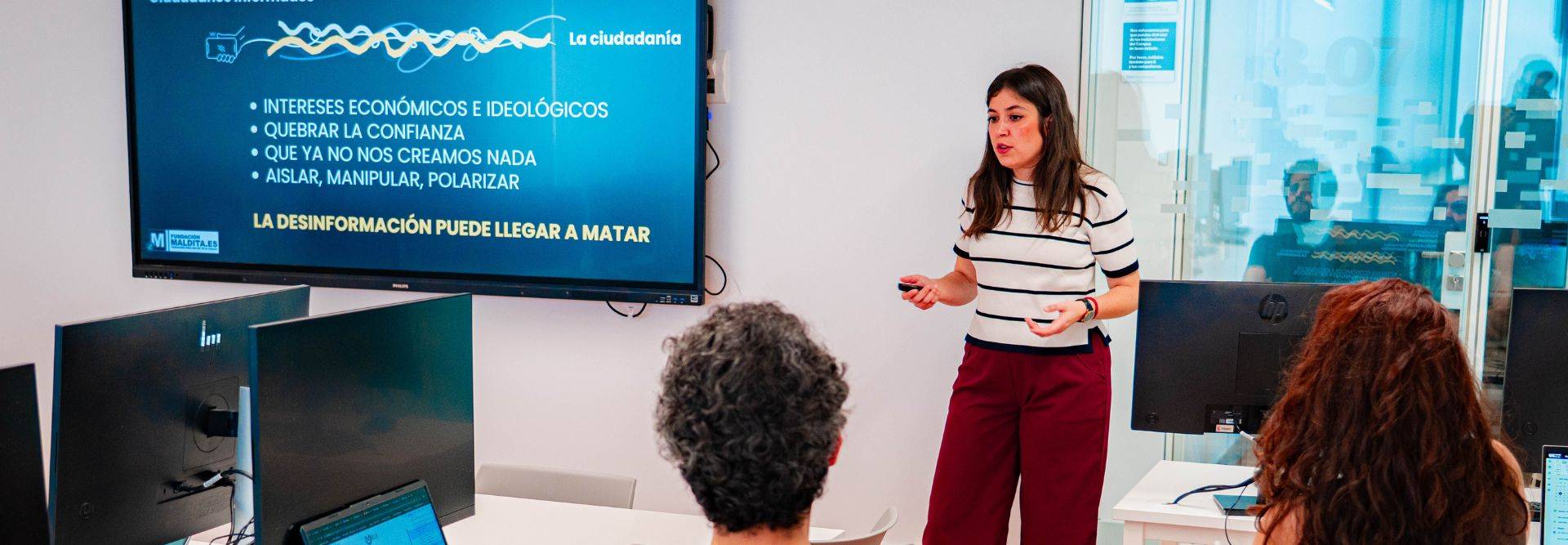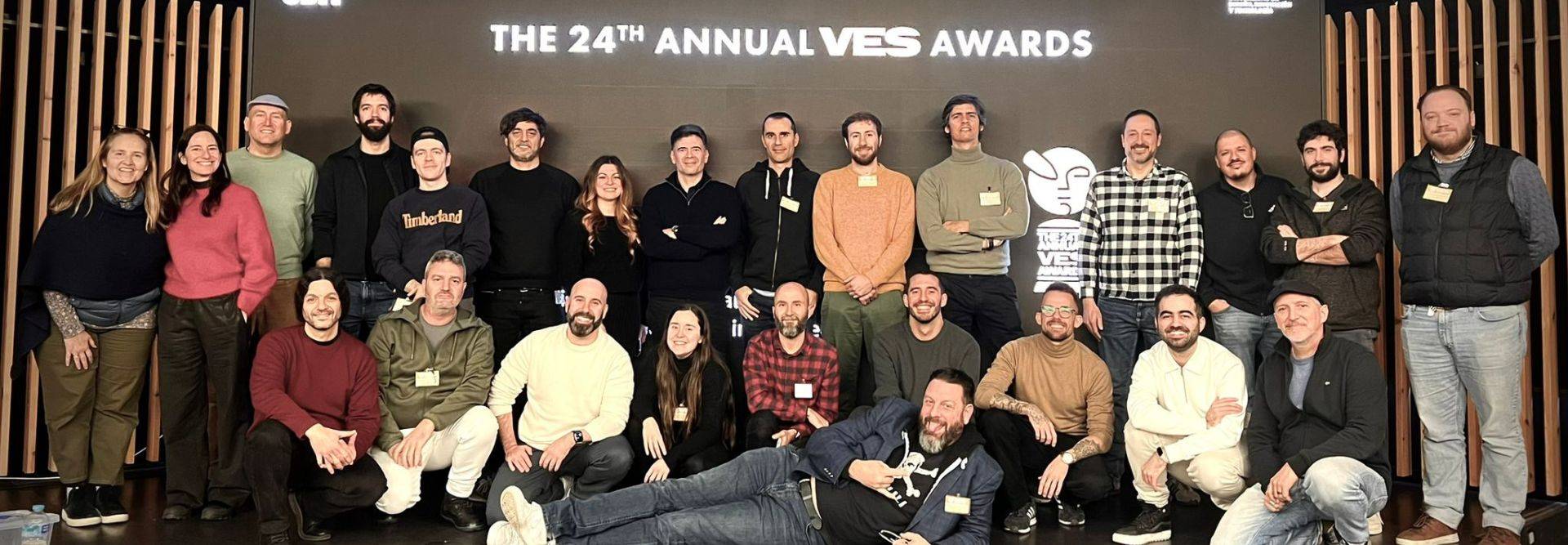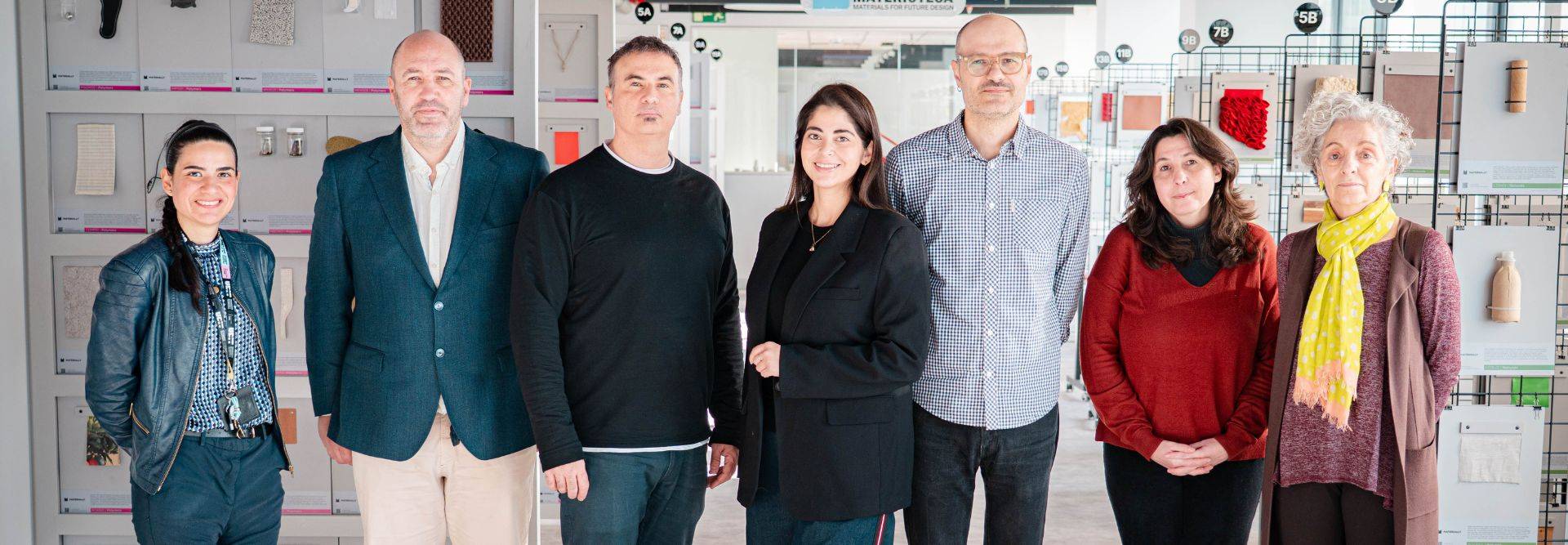Patricia Ruiz Guevara: "We are so exposed to false content that we doubt what is real".
On Tuesday 13 May, the UDIT Campus of Technology, Innovation and Applied Sciences hosted the visit of Patricia Ruiz Guevara, coordinator of AI and disinformation strategy at the Maldita.es Foundation, as part of the activities of the Master's Degree in Artificial Intelligence.
Under the title "AI against disinformation: how it is being used to sneak hoaxes, scams and other misuses, and how we use it at Maldita.es", the expert discussed how the rise of generative artificial intelligence has transformed the information ecosystem, amplifying disinformation phenomena and creating new challenges for journalism, citizenship and democratic institutions.
During the session, Ruiz Guevara emphasised that the concept of fake news has become obsolete and has been reduced to the real phenomenon of disinformation, which includes any content that has been manipulated or taken out of context, without the need for it to resemble traditional news.
One of the key points of the session was to identify the main driving forces behind disinformation. The speaker identified three main motivations: economic (monetisation of this content through clickbait, scams or pseudo-scientific content), ideological (deliberate distortion of reality to reinforce political discourse or polarise society), or simply chaos, understood as a "systematic distrust of official sources, fuelling widespread scepticism".
In this field, he drew attention to the growing use of Artificial Intelligence (especially generative) as a tool for disinformation, starting with the dissemination of false images (such as the famous "Pope in a Balenciaga jacket", the first case identified in this trend), or the creation of montages in contexts of emergency, war or electoral campaigns.
Even more worrying, he warned about the "appearance of large automated disinformation networks, which use voices generated by Artificial Intelligence on platforms such as YouTube or TikTok and which are aimed at manipulating public opinion in Spain and Europe".
In addition, she expressed concern about the large increase in the creation of sexual deepfakes , often used as part of cyberbullying campaigns, and even the use of this technology as a tool for the propagation of child pornography. He also warned about the use of chatbots such as ChatGPT "as substitutes for medical professionals, psychologists or even fortune tellers, which can have serious consequences".
The proliferation of this type of content on the internet has also led to growing distrust. In this sense, she explained how "we are so exposed to false content that we even doubt what is real".
Disinformation, the expert concluded, is not just a problem of media or technology: "it is a real threat that can polarise, manipulate and, in extreme cases, even kill" (as has been seen in hoaxes about vaccines or climate change).
Faced with this reality, he highlighted Maldita.es's commitment to verifying data, combating hoaxes and making citizens digitally literate. To this end, the session showed how the organisation already uses AI tools developed specifically for fact-checking and detecting patterns of misinformation.









